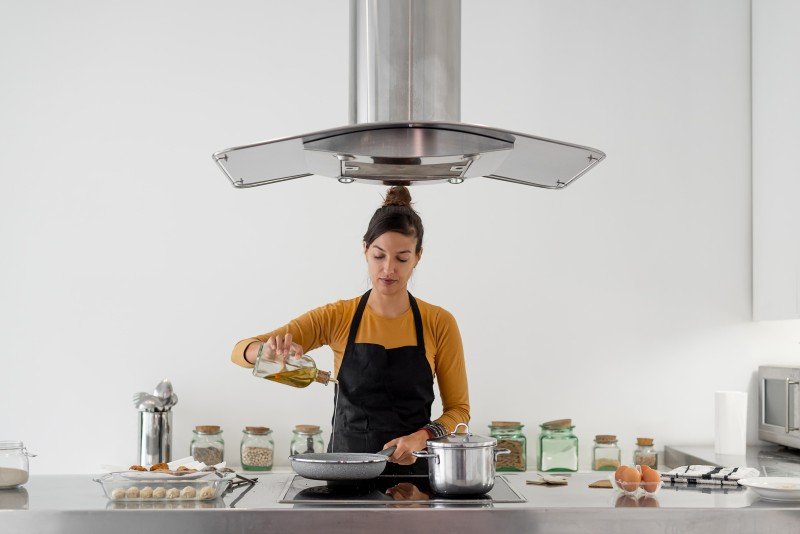Understanding Ovens and Hobs: A Comprehensive Guide
When it concerns cooking home appliances, ovens and hobs are among the most necessary tools discovered in contemporary cooking areas. They play essential functions in meal preparation, transforming raw ingredients into scrumptious meals. Comprehending pop over to these guys between various kinds of ovens and hobs and how to select the right one can make a substantial difference in cooking efficiency and food quality.
This article explores ovens and hobs in detail, supplying insights into their types, functions, advantages, and common FAQs. Whether you are a skilled chef or a beginner cook, this information will assist you make notified choices for your culinary needs.
Kinds of Ovens
Ovens can be found in numerous types, each developed for particular cooking methods and designs. Here is a detailed take a look at the most typical kinds of ovens:
| Type of Oven | Description | Best For |
|---|---|---|
| Conventional Oven | Uses heating components located at the top and bottom for even cooking. | Baking, roasting, and basic cooking |
| Convection Oven | Features a fan that flows hot air for fast and even cooking. | Baking pastries and cookies, roasting meats |
| Steam Oven | Uses steam to cook food, maintaining wetness and nutrients. | Veggies and fish |
| Microwave | Quickly cooks food using microwave radiation. | Reheating and fast meals |
| Wall Oven | Built straight into the wall for space-saving cooking solutions. | Small kitchen areas and contemporary designs |
| Skill Level | Supplies several cooking modes consisting of baking, broiling, and toasting. | Flexible cooking requires |
Kinds of Hobs
Hobs, likewise understood as cooktops, come in numerous types based upon their fuel source and design. Comprehending these alternatives can help in finding the best fit for your kitchen setup:
| Type of Hob | Description | Best For |
|---|---|---|
| Gas Hob | Utilizes gas flames for cooking, offering immediate heat control. | Standard cooking methods |
| Electric Hob | Utilizes electric coils or induction elements to heat pots and pans. | Even heat distribution |
| Induction Hob | Uses electro-magnetic energy to directly warm pots, providing fast and efficient cooking. | Energy-efficient cooking |
| Solid Plate Hob | A kind of electric hob with strong plates that takes some time to warm up but retains heat well. | Sluggish cooking |
| Ceramic Hob | Functions a glass-ceramic surface area enabling easy cleansing, with electric heating elements below. | Aesthetic appeal |
Elements to Consider When Choosing an Oven and Hob
Choosing the right oven and hob combination requires cautious consideration of a number of aspects. Below is a list of crucial aspects to remember:
Cooking Style
- Are you an everyday cook or an occasional baker?
- Do you choose steaming or frying?
Kitchen Size
- What area is readily available in your kitchen for the devices?
- Will you require integrated or freestanding models?
Fuel Source
- Do you have access to gas, or would you prefer electric?
- Are you thinking about induction cooking technology?
Budget
- What is your budget plan for buying an oven and hob?
- Are you thinking about a high-end model or a more inexpensive choice?
Energy Efficiency
- Are you wanting to minimize your energy usage?
- Do you choose appliances that include high-efficiency ratings?
Advantages of Ovens and Hobs
Both ovens and hobs bring unique benefits to the kitchen. Here's a summary of some benefits:
Ovens:
- Versatility: Able to handle a wide variety of cooking methods from baking to roasting and broiling.
- Constant Results: Even heat circulation provides reliable cooking outcomes.
- Large Capacity: Ideal for big meals and batch cooking.
Hobs:
- Control: Gas hobs offer rapid heat changes, helpful for precise cooking.
- Efficiency: Induction hobs are known for their quicker heat-up times and energy effectiveness.
- Independent Cooking: Multiple hobs permit cooking several meals concurrently.
Picking the ideal ovens and hobs is crucial for anyone looking to enhance their cooking abilities and kitchen efficiency. By comprehending the different kinds of each device, along with their advantages and functions, customers can make informed decisions that deal with their culinary routines and preferences.
As cooking areas develop, so do the technologies surrounding cooking devices. Buying the ideal combination of an oven and hob can result in better cooking experiences, greater food quality, and even pleasurable time spent in the kitchen.
Regularly Asked Questions (FAQs)
What is the difference between convection and traditional ovens?
- A stove uses a fan to flow air for even cooking, while a traditional oven relies just on the top and bottom heating aspects.
How do induction hobs work?
- Induction hobs use electromagnetic fields to directly heat pots and pans made from magnetic products, leading to quicker cooking times and more energy effectiveness.
Are gas hobs more secure than electric hobs?
- Security depends on use and setup. Gas hobs require appropriate ventilation and can provide a fire hazard, while electric hobs may present threats of burns due to their hot surfaces.
Can I bake in a steam oven?
- Yes, a steam oven can be utilized for baking, frequently leading to moister and fluffier baked products, especially breads and pastries.
What should I try to find in an integrated oven?
- Look for functions like capability, cooking modes, energy effectiveness ratings, and ease of cleaning.
By thinking about the information and guides offered in this article, readers can quickly browse the world of ovens and hobs, guaranteeing that they choose the very best appliances to suit their cooking requirements.

